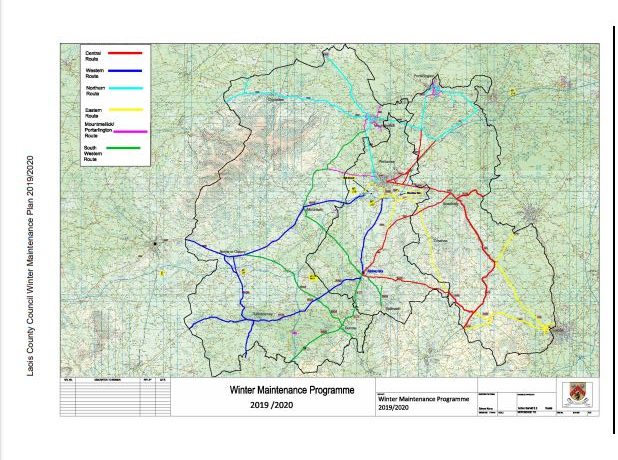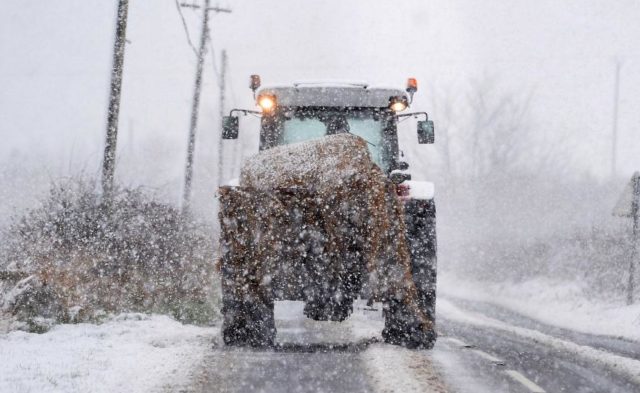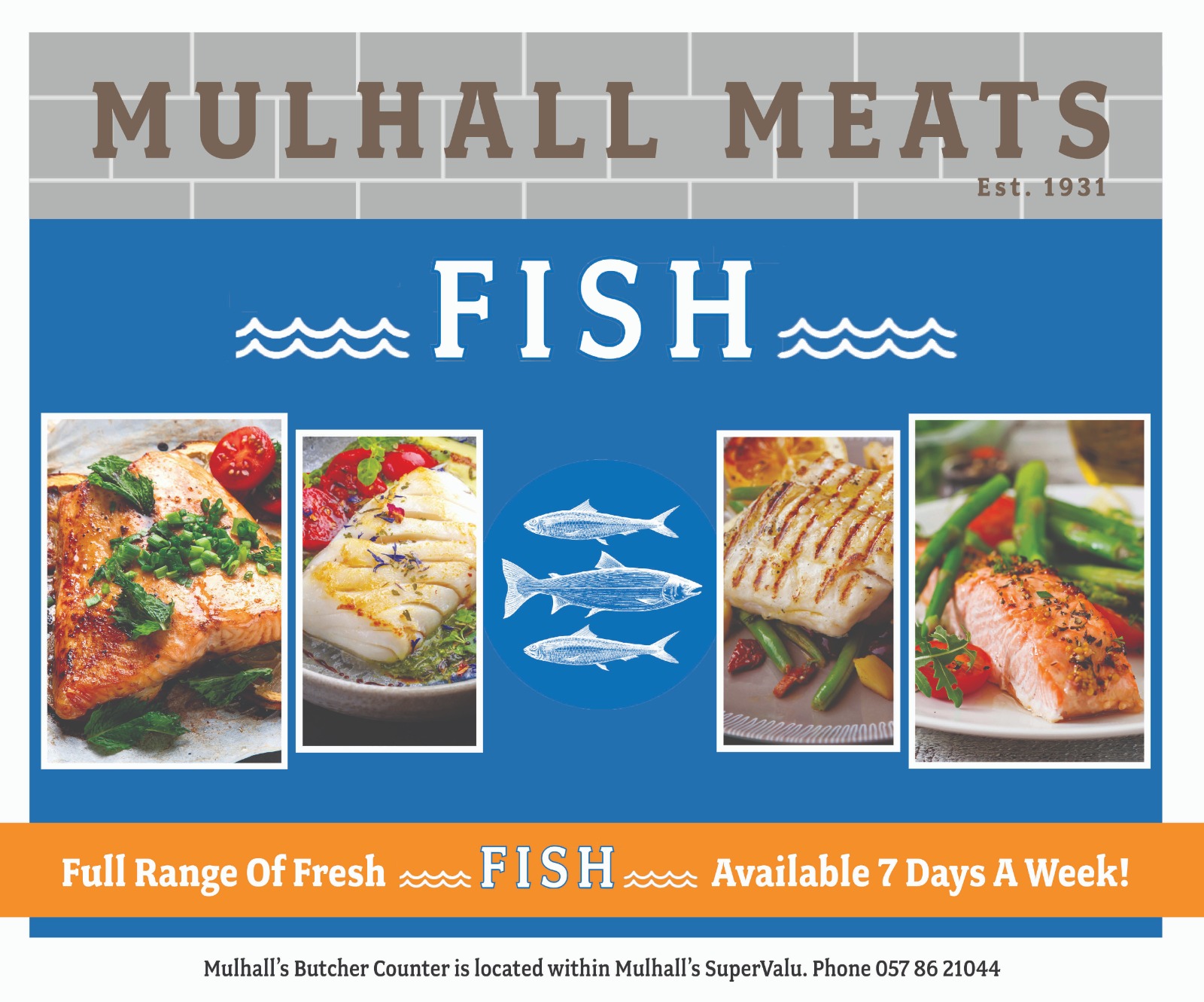Winter is coming.
The clocks are gone back; the evenings are bet and there’s a frosty bite in the mid-term mornings.
But Laois County Council are in a state of preparedness and ready for whatever the harsh winter may throw up in terms of keeping roads clear and safe.
The local authority’s Winter Maintenance Plan officially came in to effect on October 14 and has contingencies to run until April 20.
It is primarily based on the gritting of almost 500km of county roads network over the winter months at the cost of half a million euro. Council officials estimate that they will be called on to carry out between 60 and 70 gritting treatments over the duration of the winter and into spring.
A comprehensive 40-page report on the proposed gritting and salting programme and schedule of routes covered was presented to Councillors by Director of Services, Simon Walton and Senior Engineer, Adrian Barrett.
It sets out in detail the routes, the timetables, the drivers and the conditions that would trigger a gritting treatment. Usually it commences if there is a frost of minus 2 of below forecast.
The motorway roads of the M7 and M8 through Laois are primarily the responsibility of the National Roads Authority (NRA) and the (TII) and the gritting of these roads is usually carried out by a private contractor Egis Lagan Services on behalf of the NRA. These routes are classified priority one.
Laois County Council in turn is responsible for the gritting of the main regional roads around the county, about 480km, though not all regional roads are included in the schedule. Smaller roads again are priority 3 and are only salted in severe weather conditions, after priority 1 and 2 are gritted and subject to funding and resources.
And therein lies the rub and the salt in the wound as it were for many councillors from rural areas which are not gritted. They argued for these roads to be added to the schedule as people had to get to work and first make it to the busier roads.
There was also the issue of having to make it to train stations in Portlaoise or Portarlington so as to commute onwards for work or make hospital appointments. Rural councillors also highlighted the need to make roads surfaces safe near schools in their districts.
Director Simon Walton said that it was their primary objective to keep the designated routes free from snow and ice 24/7. However, he noted that motorists still had the responsibility to drive safely bearing in mind the road conditions and should not assume that the roads had been treated.
Cllrs Willie Aird and Catherine Fitzgerald were pleased to see the Portlaoise to Ballyfin road added to the schedule and they wanted to make sure that the road from the roundabout off the motorway to the Heath School was also included.
Cllr John King asked to have the Rathdowney to Lisduff road on the list and he reflected that in the bad weather in the past, individuals had carried out Trojan work to clear roads from snow and got nothing for it. He said there should be some recognition and payment in such cases.
Cllr James Kelly felt the allocation of €500k was evidently insufficient and more funding is required if all the roads necessary are to be treated. “We have to cover a huge area, more funding is obviously needed.”

Does something serious have to happen before we get a bit of salt?
Cllr Tom Mulhall confirmed that they are inundated with calls during bad weather and he wanted to see schools prioritised for safety. With 12,000 commuters leaving the county by car or by train on a daily basis he said it was vital that rural roads were made safe to allow people get to the rail stations and motorway. He asked could some savings be made during a mild winter and accumulated for harsher times.
Cllr Ben Brennan was far from happy with the plans.
“We have a school bus with 56 children on it, does something serious have to happen before we get a bit of salt? It’s not fair,” he complained. “Our requests are falling on deaf ears until there is an accident,” he dramatically claimed as he pleaded for a better gritting service the Newline, Killeshin and Rossmore areas, as well as the roads into Knockbeg College.
Cllr John Joe Fennelly requested that the road from the Ballypickas Junction to Heywood Community School in Ballinakill be included for gritting as it had a ‘lethal hill’. He also pointed out that there was a hill on the Ballyroan Road up to the primary school in Abbeyleix which required treatment in frosty conditions as otherwise vehicles start to skid.
Knockbeg and rural roads on Carlow border
Cllr Padraig Fleming said that in fairness the Council had shown a degree of flexibility if situations arose on country roads. He agreed that there were hundreds of cars going in and out of Knockbeg and the route was gritted last year. He added that during the bad weather last year a lot of locals with diggers had spent 4 or 5 days helping communities and clearing roads and they deserved some kind of token of gratitude, even just to cover their diesel, as they are not registered contractors.
Cllr Conor Bergin said it was important that the R435 from Rathdowney to Borris be included and he commented that there was previously a tragic accident near Ballybrophy train station.
All councillors had their own suggestions of more and more roads which they wanted added to the gritting schedule – The Swan Hill for Cllr Ollie Clooney as it was used by lots of lorries; the Barrowhouse to Ballylinan Road with the schools in around Carlow the roads in Sleaty, Killeen, Ballickmoyler and the Strand can be treacherous according to Cllr Aishling Moran; May Sweeney cited the road at Upper Cribbin, Ballyroan; Cllr Tom Mulhall was worried about the road from Stradbally to Vicarstown.
Cllr Aidan Mullins said that he had been raising the issue of school bus routes for the past 5 years.
Cllr John Joe Fennelly asked that salt be left at suitable drop-off points for locals to spread themselves.
Not included
The following regional roads are not included in the schedule of routes which are treated as part of the normal winter service operations (i.e. Priority 1 and 2 routes); · R440 from junction with R423 in Mountrath to Offaly County Boundary · R424 from junction with R420 at Lea Cross to Kildare County Boundary at Ullard · R432 from Ballinakill to Kilkenny County Boundary at Kilcronan · R426 from Junction with R430 at the Swan to Kilkenny County Boundary at Slatt Bridge · R429 from Junction with N80 at Ballickmoyler to Kildare County Boundary at Grange · R427 from Junction with N80 in Stradbally to Kildare County boundary at Dunrally bridge.
JCBs and loading shovels are hired from local plant hire companies from the tender list, if required during times of heavy and lying snowfalls.
SEE ALSO: Kind hearted and honest person hands in wallet to Garda Station























